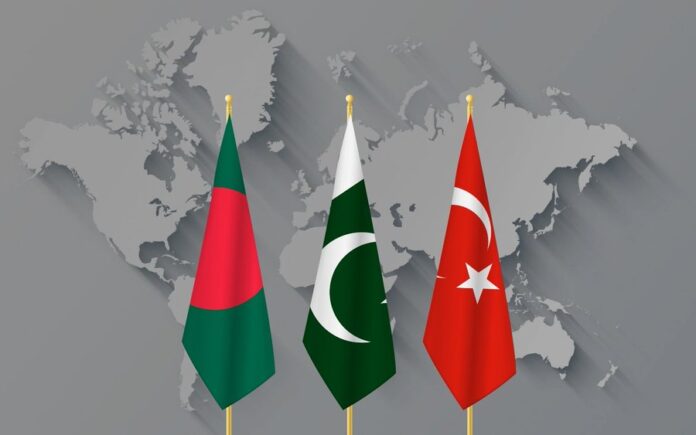The upcoming BRICS summit in Kazan, Russia, is said to usher in a new era of cooperation with the inclusion of Bangladesh, Turkey, and Pakistan into the group. This expansion, dubbed BRICS+3, signifies the emergence of a powerful geopolitical bloc that has the potential to reshape the strategic and economic landscape of the Eurasian region.
The mixed financial energy of BRICS, together with Bangladesh, Turkey, and Pakistan, creates a formidable power. Every of those new entrants brings distinctive belongings: Bangladesh’s booming textile sector, Turkey’s function as a transcontinental commerce hub, and Pakistan’s strategic place as the gateway to South Asia. Collectively, this expanded bloc enhances interregional commerce, funding, and growth alternatives throughout various industries, from manufacturing to expertise.
With the inclusion of those three nations, BRICS+3 emerges as a counterweight to Western-dominated international establishments just like the G7 and the IMF. The brand new bloc indicators a broader shift in global energy dynamics, the place rising economies, slightly than conventional Western powers, will more and more form worldwide insurance policies and order. This motion toward a multipolar world is a core goal of BRICS, and the growth strengthens that imaginative and prescient.
These nations are certain by frequent priorities akin to financial development, infrastructure growth, and counterterrorism efforts. With such overlapping pursuits, BRICS+3 can improve cooperation in addressing regional challenges while fostering nearer financial and political ties. The necessity for sustainable development and stability makes these shared targets the muse for deeper collaboration.
Nonetheless, the expanded group may also face vital challenges. Variations in political ideologies, financial techniques, and nationwide priorities amongst members may create tensions in decision-making and coordination. For instance, the complicated relationship with India could current hurdles in sustaining unity inside the group.
Regardless of these challenges, the alternatives outweigh the difficulties. Potential joint infrastructure tasks, coordinated commerce insurance policies, and a unified entrance into international governance boards make BRICS+3 a beautiful proposition. By leveraging their collective strengths, these nations can work in the direction of constructing an extra affluent, secure, and inclusive Eurasian area.



